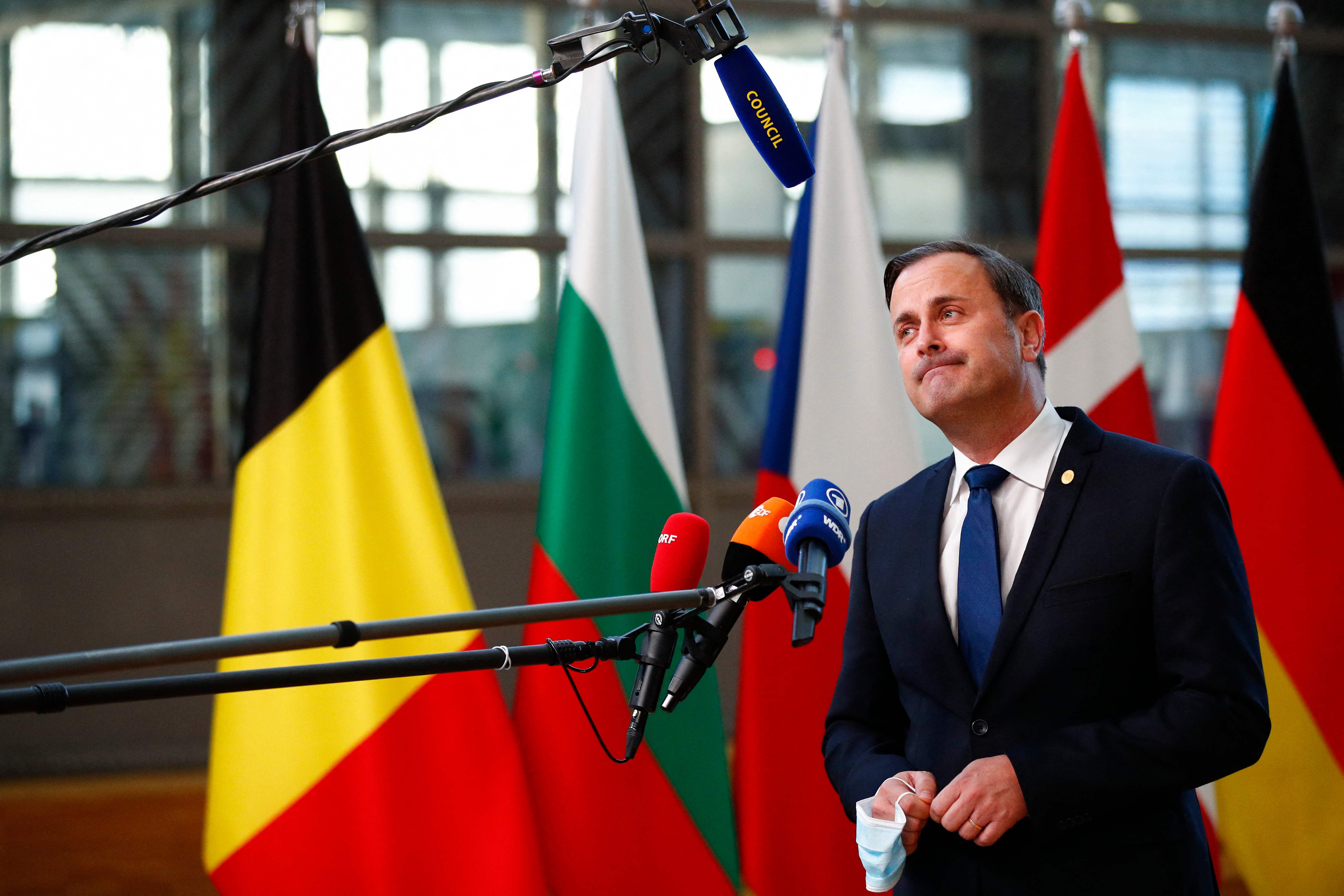Only 2 out of 56 pages of Luxembourg PM’s university thesis is not plagiarised, media probe finds
Bettel said he would accept university’s decision even if it means withdrawal of his qualification

Your support helps us to tell the story
From reproductive rights to climate change to Big Tech, The Independent is on the ground when the story is developing. Whether it's investigating the financials of Elon Musk's pro-Trump PAC or producing our latest documentary, 'The A Word', which shines a light on the American women fighting for reproductive rights, we know how important it is to parse out the facts from the messaging.
At such a critical moment in US history, we need reporters on the ground. Your donation allows us to keep sending journalists to speak to both sides of the story.
The Independent is trusted by Americans across the entire political spectrum. And unlike many other quality news outlets, we choose not to lock Americans out of our reporting and analysis with paywalls. We believe quality journalism should be available to everyone, paid for by those who can afford it.
Your support makes all the difference.Luxembourg prime minister Xavier Bettel acknowledged that his university thesis “should have been done differently,” after a media probe revealed that only two out of 56 pages of his thesis were not plagiarised.
Luxembourg news site reporter.lu made the accusations on Wednesday that Mr Bettel plagiarised more than “three-quarters” of the text of the dissertation he wrote as a student for an advanced university degree in 1999.
The report titled “The copy-and-paste premier” described the thesis as “an impressive hodgepodge of copied passages that does not meet the customary requirements of academia.”
Mr Bettel wrote the paper while he was studying public law and political science at France’s University of Nancy-II, now known as the University of Lorraine, in his mid-20s. It was for an advanced diploma, which could be seen as equivalent to a master’s degree.
In response, Mr Bettel said he wrote the thesis with a clear conscience and “to the best of my knowledge and belief at the time.” But “from today’s standpoint, it could have – yes, maybe should have – been done differently,” he said.
The prime minister added that he had full confidence in the University of Lorraine to “assess” whether his work met the criteria for the time it was written and he would accept the decision whatever it would be.
Mr Bettel, who has been prime minister of the country since 2013, wrote the dissertation titled: “Towards a possible reform of voting systems in the European Parliament elections”.
Independent researchers and experts concluded that the thesis contained lengthy paragraphs and almost 96 per cent of the text was lifted from two books, one newspaper article, and four websites, without attribution.
Speaking about the controversy, the University of Lorraine said: “The institution takes breaches of scientific integrity seriously and an investigation will be carried out into the content of the dissertation.”
“The possible sanctions that the institution may have to take will depend on the conclusions of the investigation,” it said, adding that the university was “not equipped with the current anti-plagiarism software” at that time.
But Mr Bettel is not the first high-profile European politician who has faced this embarrassment in recent years. Germany’s family affair minister Franziska Giffey was forced to resign in May over a plagiarism controversy. Germany’s former defence minister Karl-Theodor zu Guttenberg was also forced to step down in 2011 following a PhD plagiarism row.
Join our commenting forum
Join thought-provoking conversations, follow other Independent readers and see their replies
Comments